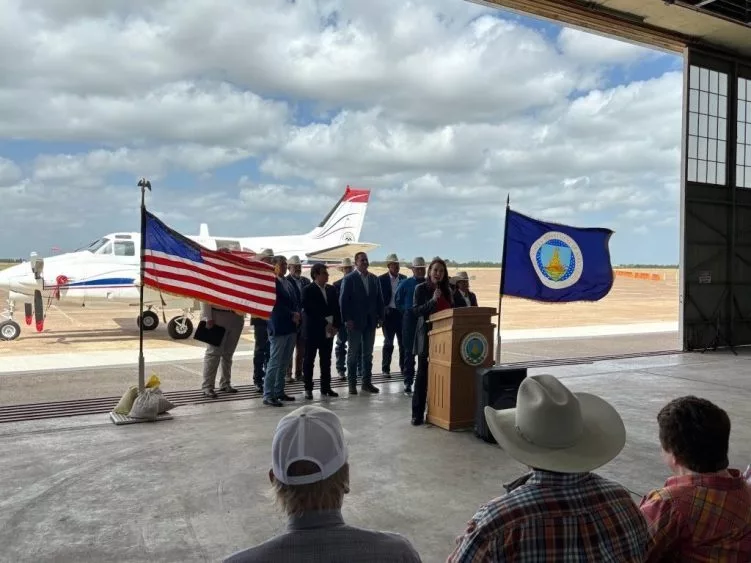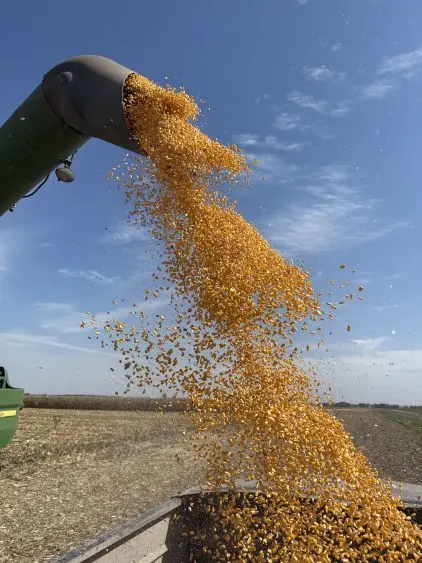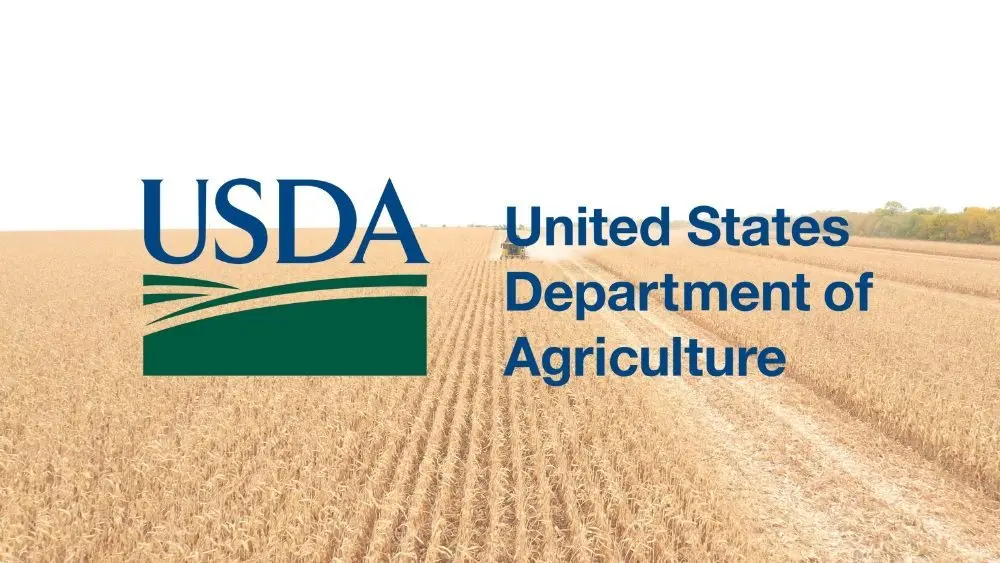
(Edinburg, TX, June 18, 2025) – U.S. Secretary of Agriculture Brooke L. Rollins this morning launched an $8.5 million sterile New World screwworm (NWS) fly dispersal facility in South Texas and announced a sweeping five-pronged plan (PDF, 380 KB) to enhance USDA’s already robust ability to detect, control, and eliminate this pest. These urgent actions are necessary to finish the fight against NWS and protect the United States.
NWS is a devastating pest that causes serious and often deadly damage to livestock, wildlife, pets, and in rare cases, humans. While NWS has been eradicated from the United States for decades, recent detections in Mexico as far north as Oaxaca and Veracruz, about 700 miles away from the U.S. border, led to the immediate suspension of live cattle, horse, and bison imports through U.S. ports of entry along the southern border on May 11, 2025.
“The United States has defeated NWS before and we will do it again,” said Secretary Rollins. “We do not take lightly the threat NWS poses to our livestock industry, our economy, and our food supply chain. The United States government will use all resources at its disposal to push back NWS, and today’s announcement of a domestic strategy to bolster our border defenses is just the beginning. We have the proven tools, strong domestic and international partnerships, and the grit needed to win this battle.”
Following the dispersal facility groundbreaking at Moore Air Base, Secretary Rollins will meet with APHIS’s cattle fever tick riders along the Rio Grande River. The Secretary will see firsthand the critical role tick riders provide for identifying wildlife and preventing the spread of wild disease. In the event NWS advances northward into the U.S., these tick riders will play a crucial role in spotting and combatting this pest.
Key Facets of USDA’s Five-Pronged Plan (PDF, 380 KB) to Address New World Screwworm
1. Stop the Pest from Spreading in Mexico and Ensure We Are Full Partners in Eradication
- USDA’s recent $21 million expenditure went toward renovating an existing fruit fly production facility in Metapa, Mexico, which will provide an additional 60-100 million sterile flies a week to stop the spread, on top of the over 100 million already produced in Panama. This will result in at least 160 million flies per week.
- Over the last two weeks, USDA conducted a robust, in-person audit of Mexico’s animal health controls and will maintain close continual monitoring of these aspects moving forward and will make continuous improvements. These in-person visits have allowed a unique opportunity for APHIS to see first-hand the challenges and opportunities in Mexico toward combating NWS.
- USDA is working closely with Mexico to improve its surveillance and detection of NWS, which includes but is not limited to regularly providing traps, lures, and technical expertise to Mexico.
2. Protect the U.S. Border at All Costs
- USDA will support Mexico’s strategic trapping along our shared border and ensure we receive regular reporting as an early warning intervention.
- USDA will escalate communications and public outreach along the U.S.-Mexico border to create a “barrier zone of vigilance” and boost as close to real time as possible awareness of this pest.
- APHIS cattle fever tick riders in collaboration with U.S. Customs & Border Protection and with state partners will intercept and treat stray and illegally introduced livestock.
3. Maximize Our Readiness
- USDA will partner with state animal health officials to update and finalize emergency management plans and support federal, state, and local responders in training on and practicing for a potential response.
- USDA will ensure we have sufficient NWS treatments and will work to remove any federal regulatory hurdles for their use.
4. Take the Fight to the Screwworm
- Because sterile NWS flies are one of the most important and proven tools we have for eradicating the pest, USDA will immediately begin building a sterile insect dispersal facility at Moore Air Base, set to be completed in 2025. This facility will have the capability to disperse sterile flies in Northern Mexico.
- USDA is exploring all options to eradicate NWS, which includes potential expenditures in new technologies, new science, including possible plans to move forward with the design process of a domestic sterile fly production facility to compliment the new dispersal facility at Moore Air Base which has also been identified as the proposed location. The facility could boost domestic sterile fly production by up to 300 million flies per week and could complement current production that already exists in Panama and Mexico.
5. Innovate Our Way to Eradication
- USDA is pursuing innovative research to improve sterile insect technology, exploring development of better traps and lures, exploring next generation NWS treatments, and assessing the potential use and practicality of additional strains or genetically modified versions of the pest as well as e-beam and other radiation technology for the production of sterile flies.
- USDA will strengthen partnerships with land-grant universities in border states such as Texas, Arizona and New Mexico to facilitate local training, trap deployment, surveillance validation, and stakeholder outreach as an initial manner.
Additionally, to solicit input from stakeholders and to best inform the finalization of future plans, USDA will hold four public listening sessions to get feedback on the following topics: sterile fly production technology, eradication tools and technologies aside from sterile fly production, the benefits and barriers including timelines and costs of enhanced domestic vs international sterile fly production, and other innovative ideas. The Department of Agriculture has and remains committed to working in close coordination with our federal, state, local and private sector partners to defeat this pest once and for all.
“Texas is on the front lines of the threat posed by the New World Screwworm. Proactive measures like this dispersal facility are a critical step to ensure our state and nation are prepared to respond swiftly and effectively to this challenge. We are grateful for the Trump Administration and Secretary Rollins’ continued support of Texas in safeguarding the economic vitality of our farming and ranching communities. We will continue to work with our federal partners to eliminate this threat,” said Governor Greg Abbott.
“If we do not take action now, the New World Screwworm will devastate Texas livestock and wildlife. Thank you, Secretary Rollins, for swiftly accepting my proposal to establish this critical facility in Hidalgo County. I am committed to working alongside the Administration to put Texas farmers and ranchers first and safeguard our agriculture industry,” said Representative Monica De La Cruz.
“Today’s policy changes represent a huge step forward to eradicating the screwworm and protecting American livestock— especially the opening of a U.S.-based eradication facility in South Texas. This facility has been one of my top priorities in Congress. From introducing the STOP Screwworms Act to leading funding efforts through my seat on the House Appropriations Committee, I am determined to do everything possible to eliminate this deadly parasite. Thank you, Secretary Rollins, for your partnership and commitment to deliver for our farmers and ranchers in Texas and across the nation,” said Representative Tony Gonzales.
“The return of the New World Screwworm is a glaring potential threat to South Texas ranchers, wildlife, and communities as a whole. If it reaches our country, this pest could wreak havoc on our economy and food supply chain. It must be eradicated. I look forward to working with USDA and other partners on innovative solutions right here at Moore Air Base to ensure the safety of our agricultural industry and South Texans’ wellbeing,” said Representative Vicente Gonzalez.
“The New World screwworm poses a serious threat to our cattle, economy, and food supply, but with Secretary Rollins’ leadership and USDA’s new 5-Prong Strategy, we’re taking aggressive action to stop it and protect America’s farmers and ranchers. As the Representative for the largest cattle-feeding district, I am committed to working closely with the Secretary to ensure we have every necessary tool to safeguard our livestock producers and feeders and their way of life,” said Representative Ronny Jackson.
“I’m proud to partner with decisive leaders such as USDA Secretary Rollins and our Texas congressional delegation in combating the New World Screwworm. This is a significant threat, and it’s critical we stay ahead of it. Texas has historically been at the forefront of American agriculture, and we are prepared to assist Secretary Rollins and the USDA in protecting our livestock, economy, and food supply. I look forward to implementing a robust, effective plan to protect Texas agriculture from this dangerous pest,” said Commissioner of Agriculture Sid Miller.
“Curbing the spread of the destructive New World screwworm is critical to protecting the Texas agriculture and livestock industry, and this new sterile fly distribution facility in Edinburg is a significant step in the right direction,” said Senator John Cornyn. “I will continue to work alongside Secretary Rollins and my colleagues in Congress to halt the spread of New World screwworm and increase our sterile fly production capacity through my STOP Screwworms Act.”
“The only way to protect the American cattle herd from the devastating threat of New World screwworm is by having a sufficient supply of sterile flies to push this pest away from our border,” said National Cattlemen’s Beef Association President Buck Wehrbein, a Nebraska cattleman. “To accomplish that, we need a sterile fly production facility of our own in the United States. Moore Air Base was previously part of our nation’s screwworm eradication effort in the 1960s and now this base will be the cornerstone of our renewed fight against this parasite. NCBA, and state affiliate partners including the Texas and Southwestern Cattle Raisers Association and Texas Cattle Feeders Association, have been pushing for a facility like this since the start of the year. We appreciate Secretary Rollins’ continued work to protect American agriculture from the New World screwworm. It’s an honor to join her in Texas for this important event.”
“Texas Farm Bureau applauds U.S. Secretary of Agriculture Brooke Rollins for advancing the construction of a sterile insect production and distribution facility at Moore Air Base. This investment is a critical step in protecting Texas livestock, wildlife and our food supply from the devastating threat of the New World screwworm (NWS). As the screwworm threat has moved north from Panama into Mexico, Texas Farm Bureau made the establishment of a domestic sterile insect facility one of our highest priorities. A robust, science-based defense, anchored by a U.S.-based facility, is essential to combatting this destructive pest. We’re grateful to the Congressional leaders who have championed this effort and to USDA for its commitment to proactive, long-term solutions. We look forward to continued collaboration to ensure our producers, rural communities and consumers are protected from this threat,” said Texas Farm Bureau President Russell Boening.
“We commend Secretary Rollins for prioritizing efforts to combat New World Screwworm by establishing sterile fly dispersal and production facilities in South Texas which will significantly enhance our capabilities to contain the screwworm in Southern Mexico,” said Texas Cattle Feeders Association chairman-elect Laphe LaRoe. “These additional resources, combined with robust implementation of surveillance, sampling, reporting and enhanced treatment protocols provide a strong foundation for the U.S. to continue fighting the screwworm fly where it is today and ensure continued confidence in cattle and beef trade between the U.S. and Mexico.”
“Today’s announcement is pivotal in protecting the U.S. cattle industry. Sterile flies are the only known way to stop the reproduction and continued expansion of New World screwworm, and it’s assuring to see Secretary Rollins follow through her early commitments to increasing production of sterile flies domestically,” said Texas & Southwestern Cattle Raisers Association First Vice President Stephen Diebel.



